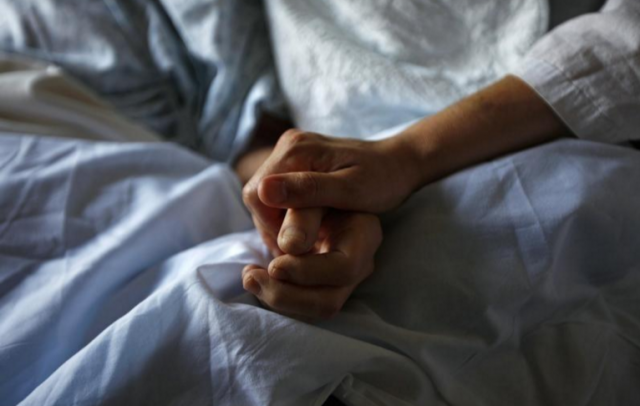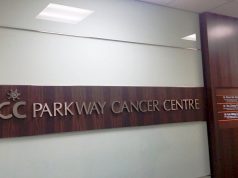
If not a friend or a family member, perhaps each person knows someone battling against cancer. Often, it might be instinctive to offer support and kind words, but sometimes, one is lost for it. Cancer is a journey—both physically and emotionally—where patients undergo different stages of medical treatment, and each process involves various emotions.
Cancer patients might undergo physical difficulties like nausea, vomiting, diarrhea, or loss of appetite during chemotherapy; and support during these times is much needed. Along with these struggles, patients also need a holding hand in dealing with what they feel.
Jaime Yeo, cancer counselor of Parkway Cancer Center (PCC) in Singapore, said, “During these times, patients experience a lot of emotions and these emotions can be very intense.”
As a counselor for cancer patients, Yeo said the common theme that emerges is about loss.
“When somebody gets diagnosed with cancer, they experience loss—loss of health, well-being, independence, control over life, identity of who they are and what they can do, sense of security, and future,” she said.
5 stages of cancer grief
This experience results to what is commonly referred to as the 5 stages of cancer grief: Anger, fear, stress and anxiety, sadness and depression, or even guilt.
During these times, these are what the patients usually face as explained by Yeo:
1. Denial. Patients may feel numbness, shock or disbelief; or have difficulty processing information, difficulty in accepting the diagnosis or not wanting to know or talk about the cancer. In extreme cases, some patients refuse to believe that one is ill or has cancer. However, denial usually fades once the treatment commences.
2. Anger. Patients may feel anger towards themselves, their caregivers,
friends, healthcare providers, or God; and would ask the question “Why me?” They may feel emotions such as frustration, irritability, blaming, etc, which sometimes mask feelings that are hard to show. According to Yeo, these emotions need to be expressed in a safe and healthy way.
3. Fear. Those with cancer also feel worried or become fearful of the unknown; and may have uncertainties on the following: treatment side effects, pain, recurrence of cancer once treated, and death and dying.
4. Stress and anxiety. According to Yeo, these emotions are common when undergoing major life changes. A cancer patient may have difficulty in coping with adjustments such as changes in lifestyle or when quitting a job is necessary. When stressed, a patient may have excessive worrying, apprehension, or fear; has difficulty concentrating; has sleep problems; may have heart palpitations; have shortness of breath; or tensed muscles.
5. Acceptance. This stage doesn’t necessarily mean that the patient has fully accepted his or her disease but that the patient has acknowledged one’s condition. Although this is the last stage, patients may also go back to the other emotions mentioned in these stages.
The counselor however noted that anxiety can also be a side effect of certain treatments or medications.
1. Sadness and depression. Cancer patients may have clinical depression when they experience five or more of the following symptoms nearly everyday for at least two weeks: a depressed mood; loss of interest or pleasure; significant changes in weight or change in appetite; changes in sleep patterns; restlessness ; fatigue or loss of energy; feelings of worthlessness or guilt; and suicidal.
2. Guilt. Patients may also blame themselves for their illness. They might feel guilt because they think they are “burden” to their loved ones; regret over lifestyle choices they think may have contributed to their cancer like smoking or alcohol-drinking; or might have the belief that their cancer is caused by something that they have done wrong in their lives.
Yeo underscored that patients need a lot of support during these times—both practical and emotional.
“One thing we can offer to patients is empathy. It is the ability to understand and share the feelings of another,” she said.
However, Yeo warned that one might confuse empathy with sympathy. To illustrate, she said, “Empathy is walking a mile in someone’s shoes, while sympathy is being sorry that their feet hurt.”
Counseling is a free service provided by PCC, which is consistent to their philosophy of holistic approach in cancer treatment. Specifically, this service is under the CanHope program, which aims to inspire hope to cancer patients and their caregivers through different activities that offer psycho-social support.
On the other hand, for patients who find it difficult to communicate their emotions, CanHope also provides art therapy. Facilitated by trained art therapists, this intervention uses art-making as a primary mode of expression and communication to help patients cope with challenges.
According to Paula Rusly, PCC’s senior counselor, patients need not to have previous experience or expertise in art in order to join an art therapy session.
“It allows cancer patients to express concerns and feelings such as expressing grief and loss,” she shared.





